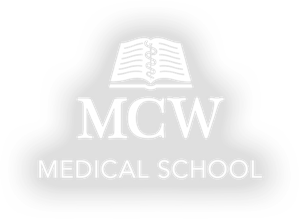MCW-Green Bay Curriculum
MCW-Green Bay Academic Program
Curriculum Schedule
The MCW-Green Bay campus features our three-year curriculum, a calendar-efficient schedule spanning 134-weeks, allowing you to complete your medical school experience in one community and in only three years. This is achieved by reducing the number of electives and the length of traditional medical school breaks, allowing you to graduate sooner and begin practicing medicine one year earlier.
Physician in the Community Scholarly Concentration
As an MCW-Green Bay student, you’ll participate in our Physician in the Community Scholarly Concentration, linking your medical education with the resources of our clinical partners and the needs of the Green Bay-area communities to promote health in Northern Wisconsin. This unique MCW experience is designed to cultivate your medical skills and interests, transforming them into a quest for lifelong learning in your practice as a primary care physician, general surgeon or psychiatrist.


